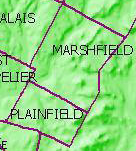Category Archives: Knight Foundation
Reporter needs story? Listen to neighbors on FPF
#VT #BTV – In this week’s Seven Days (Vermont’s excellent free alt. weekly), I’ve already counted three stories that stem from postings made on various Front Porch Forums…
- Silvio’s Silver Lining (3:20 mark).. crime in Cambridge
- Weinberger Wants Year-Round Waterfront Action, But Some Neighbors Are Wary… Burlington politics
- UVM Sets Kill Traps for Dam-Building Beavers in Centennial Woods… wildlife controversy
And they’re not alone… ABC22/Fox44 local news covered a Burlington break-in via FPF this week, and the Burlington Free Press, VPR, WCAX, and many community newspaper frequently turn to FPF.
We love it. FPF helps local traditional media find story leads. And we help grow the audience for the stories that they report. We’ve heard many times from FPF members who rarely tuned into local news before signing up for their Front Porch Forums… and now they pay more attention to community issues. Strong and vibrant local media… it’s crucial for our democracy and we’re honored to play our role.
UPDATE: Just saw these tweets…
Americans connection with neighbors slipping
#VT – From the Economist…
AMERICANS are still famously neighbourly (especially compared to Europeans) but they’re getting less so. A new book released last week, “Social Trends in American Life”, sees a group of prominent American social scientists presenting and explaining the results of the General Social Survey an ongoing study that has regularly recorded and tracked changes in social attitudes and make-up since the early 1970s…
For the most part, the results are unsurprising… But one trend in the pattern of American social life is curious: Americans have never been less likely to be friends with their neighbours than before. In 1974, 44% of respondents said that they had spent a social evening with neighbours more than once a month. By 2008, that number had dropped to a tick over 30%. Over the course of the study’s existence, the number has been dropping consistently.
The effect is not quite uniform. The likelihood of socialising with neighbours more than once a month declines with age but levels off among the middle-aged before a brief fillip among the elderly. By way of contrast, there have been steady increases in the number of people who socialise with friends (43%) or relatives (60%) more than once a month. Moreover, it is highly dependent on location. People in rural areas are much more likely to spend time with their neighbours than those in urban areas. Residents of suburbs exhibit the lowest level of neighbourliness…
How social interaction conditions political outcomes is not always clear. In 2000, Robert Putnam, a Harvard sociologist, made waves with his book, “Bowling Alone”. His concern was that civic life in America was fast disappearing and that this would have dire political consequences. Fewer people were members of community or social associations, a trend made most visible by the prevalence of people bowling alone rather than in teams or leagues. Countries that lack a dense network of civic life are often undemocratic or poorly governed as citizens have less regard for each other.
The primary culprit here is suburbanisation. Suburban life for most Americans is far from the bed-hopping intrigues depicted in “Desperate Housewives”. Instead, big houses, wide streets and lengthy commutes reduce the chance of running into neighbours, let alone becoming friends. Technology too has made staying in contact with friends and relatives easier than in the past, decreasing the need or time available to meet those over the fence. Just as voters can tailor their media diet to avoid unwanted opinions they can now calibrate their friendships to avoid those with the wrong opinions.
This jibes with our experience hosting Front Porch Forum across Vermont.
Facebook vs. Housework? Foursquare on the Ropes?
#VT – Not everyone is rosy about all social media. First, from Information Week…
A recent study from The University of Canterbury at New Zealand shows… What was a bit surprising was how Facebook fared: It placed 29th out of 30 daily behaviors that study participants were asked to rank. In fact, it would seem, the only thing that makes people happy less than Facebook is recovering from illness. Facebook ranked 28th in engagement and 24th in pleasure. It ranked dead last in meaning…
Ranking higher than Facebook on the happiness, meaning and engagement meter were housework, studying, and paid work… I’m not a huge housework fan, but when it comes to happiness, meaning and engagement, I get more out of housework than I get from Facebook. After I clean the kitchen, for example, I am happy with how nice it looks. There’s meaning in what I did: My family has clean dishes and a clean workspace. We don’t worry about food poisoning… I think the point is that activities with purpose give us happiness, meaning and a sense of engagement — and Facebook all too often seems to serve none of these areas. That should worry businesses who hope to use Facebook to their benefit.
Here’s a prediction: Foursquare will be the next highly-funded casualty in the social media sphere… Rather than be disruptive, Foursquare is being dysfunctional. The company is trying desperately to follow industry leaders instead of leading an industry. They are stuck in social media no man’s land.Foursquare was founded in 2009 as a local “check-in” service. To-date, the company has raised more than $70 million (the last funding valued the company at $600 million). In 2010, Facebook, Google and Yelp added their own version of Foursquare’s most compelling feature ““ the check-in. This summer, after getting crushed for two years by competitors, Foursquare decided to finally de-emphasize check-in and the game it had created around becoming “mayor” of a location. Only geeks with dreams of being the Michael Bloomberg of the Soho Starbucks were playing…Don’t get me wrong; checking in is useful on a user’s primary social platform if they don’t mind the privacy implications. Many people want to let friends know where they are or brag about being at a cool event. But like the GPS was to TomTom, the “check-in” is to Foursquare. It was their one trick. Satellite navigation went into both cars and phones ““ bruising TomTom. Similarly the check-in was built into Facebook, Yelp, Google and Trip Advisor. Will it be the death of Foursquare’s pony? By the time Foursquare realized they were becoming irrelevant, it was too late. I estimate that the company has cash for 12 more months of operation with its current 150 employees. There may still be time for a fix.
Marshfield and Plainfield join Front Porch Forum
 #VT – Welcome to the communities of Marshfield and Plainfield. Their FPF launched today! A special thanks to the many supporters and the two selectboards for making this happen. Now… please spread the word and encourage any folks you know in these two Vermont towns to sign up at FrontPorchForum.com.
#VT – Welcome to the communities of Marshfield and Plainfield. Their FPF launched today! A special thanks to the many supporters and the two selectboards for making this happen. Now… please spread the word and encourage any folks you know in these two Vermont towns to sign up at FrontPorchForum.com.
Community development in Randolph
#VT – I’m invited to speak at the annual meeting of the Randolph Area Community Development Corporation. I’m looking forward to it! If you’re in central Vermont this evening, please consider joining the crowd.
Randolph Area Community Development Corporation (RACDC)
2012 Annual Membership Meeting
Thursday, September 20th at 6:00pm
At Chadwick’s Restaurant, Event Room
10 Prince Street, Randolph, VT
For the purpose of: Electing Board Members, Updating the Membership, Recognition and AwardsFeaturing Guest Speaker: Michael Wood-Lewis, Front Porch Forum
“Helping Vermont Neighbors Connect & Build Community”
About Blog
Ghost of Midnight is an online journal about fostering community within neighborhoods, with a special focus on Front Porch Forum (FPF). My wife, Valerie, and I founded FPF in 2006... read more
Post Categories
- Uncategorized
- PDF2009
- Calendar
- Northeast Kingdom
- podcast
- Peer Rental
- Localization
- Big Tech
- Events
- PDF2007
- Web Traffic
- Google AdSense
- Pay It Forward
- Elections
- berkmansunlight
- Maps
- Video
- Upstate New York
- Coupons
- Wildlife
- Mobile
- Viral Marketing
- Raffle
- Donations
- Crisis Response
- Lost & Found
- Real Estate
- College Students
- Gratitude
- Social Responsibility
- Orton Family Foundation
- Start ups
- Make It Your Own Awards
- Online Civility
- Clay Shirky
- Best of FPF
- Newspapers
- Humor
- How To Use FPF
- Online Classified Ads
- Peer Reviews
- Politics
- Community Management
- Economic Development
- Local Reviews
- Case Foundation
- Borrow and Lend
- Neighborhood Watch
- Good Government
- Small Business Advertising
- Citizen Journalism
- e-Vermont
- Democracy
- Local Search
- Knight Foundation
- Burlington
- MacArthur Fellows
- Civic Engagement
- Social Media
- social capital
- Social Networking
- Vermont
- Neighborhood
- Community Building
- Local Online
- Front Porch Forum
 #BTV #VT –
#BTV #VT –



 “I love this forum. I posted a search for a reel-to-reel tape player and received two responses before breakfast. Thanks to all who considered responding.”
“I love this forum. I posted a search for a reel-to-reel tape player and received two responses before breakfast. Thanks to all who considered responding.”